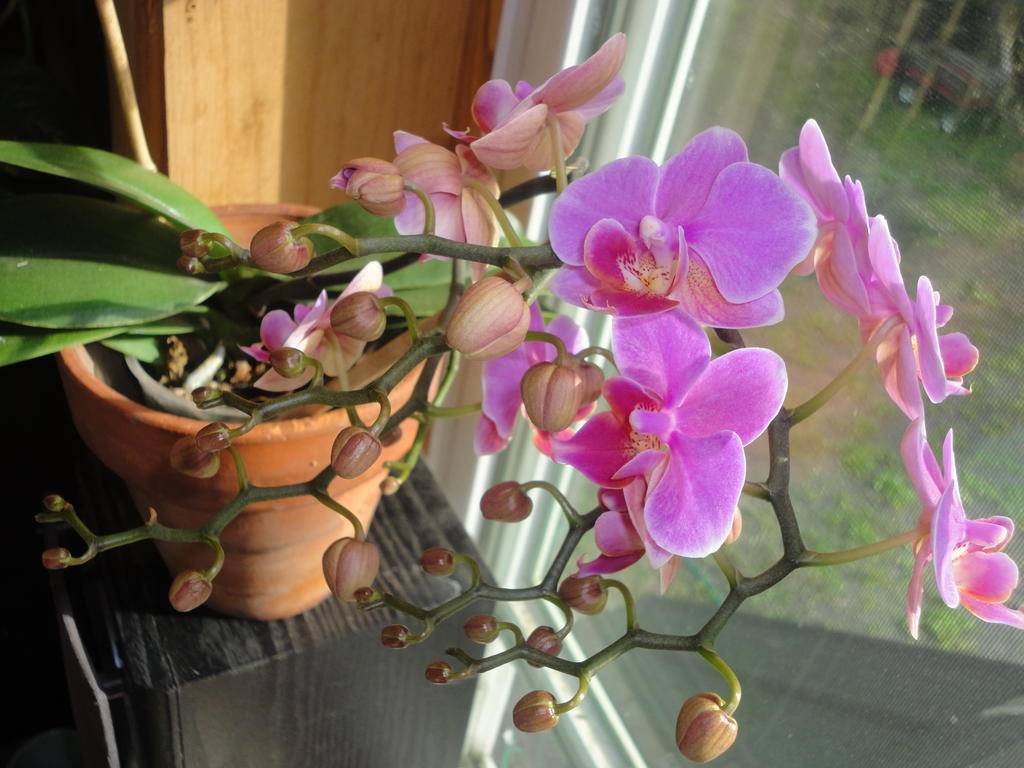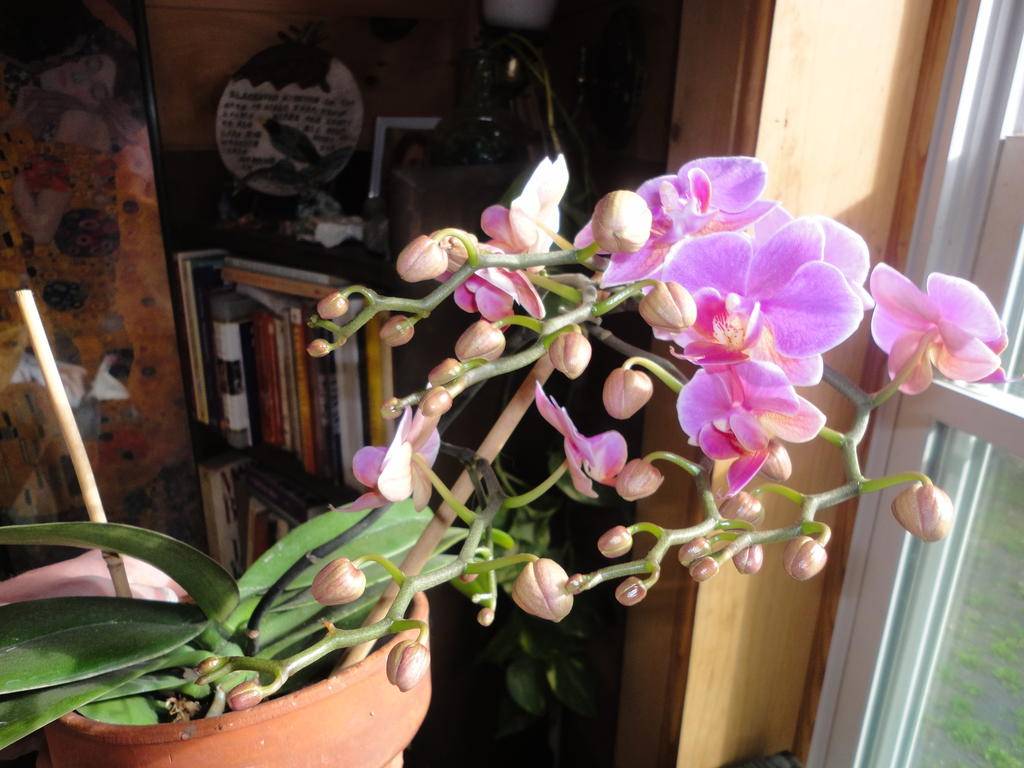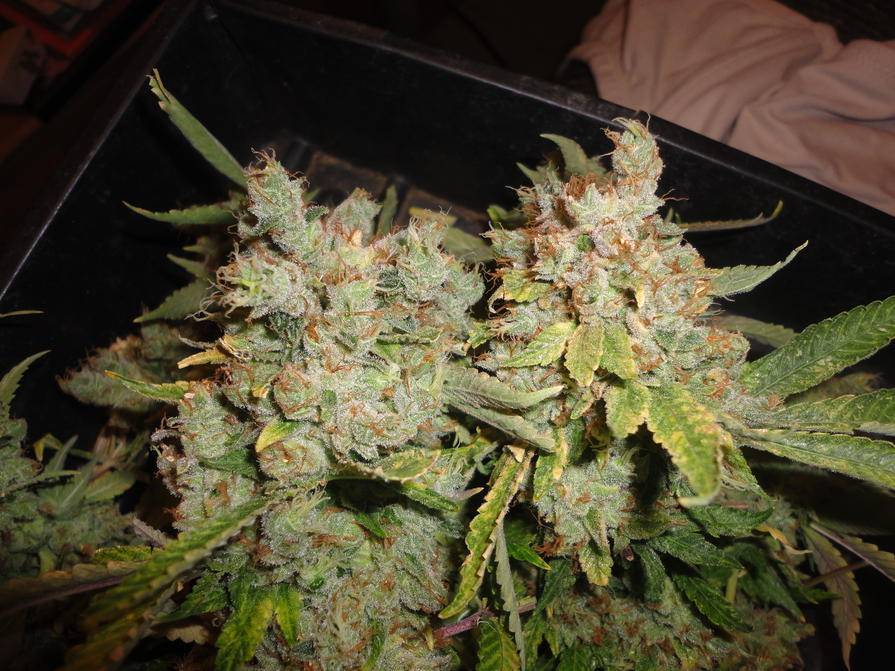My sprout tek is this....
1/4 to 1/2 cup seeds ( i use red wheat) Let soak in sprout jar for 12 hours (different for different sprouts) then drain. I then rinse with water every 12 hours or so and use the rinse water to water my Orchids and house plants. When the roots about 1 to 2 times the size of the seed I soak in 1 gal of water bubbled.
I then use this at about 1 cup per gal of water with fantastic results. I also have been lazy before and dumped it on straight to no noticeable negative effect
What I do different is I will soak them for 24 hours, use save the sprouts and soak for anther 24 hours, use and then sometimes once more. The last one I sometimes mash the seeds and use sometimes I just rinse twice and plant the sprouts and a cover crop.
Here is one of my orchids going full steam thanks to sprout teas. I have never seen this plant or many other orchids with this many blooms. I have others that after the blooms start to fade on one branch, instead of growing a new one (which they usually do) they are sending new flowers out of the end of the dieing flower spike. Cool shit.


1/4 to 1/2 cup seeds ( i use red wheat) Let soak in sprout jar for 12 hours (different for different sprouts) then drain. I then rinse with water every 12 hours or so and use the rinse water to water my Orchids and house plants. When the roots about 1 to 2 times the size of the seed I soak in 1 gal of water bubbled.
I then use this at about 1 cup per gal of water with fantastic results. I also have been lazy before and dumped it on straight to no noticeable negative effect
What I do different is I will soak them for 24 hours, use save the sprouts and soak for anther 24 hours, use and then sometimes once more. The last one I sometimes mash the seeds and use sometimes I just rinse twice and plant the sprouts and a cover crop.
Here is one of my orchids going full steam thanks to sprout teas. I have never seen this plant or many other orchids with this many blooms. I have others that after the blooms start to fade on one branch, instead of growing a new one (which they usually do) they are sending new flowers out of the end of the dieing flower spike. Cool shit.


